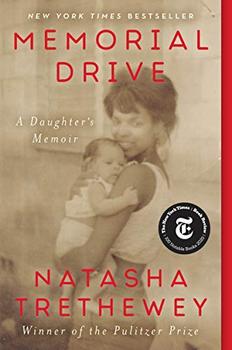Summary | Excerpt | Reviews | Beyond the Book | Readalikes | Genres & Themes | Author Bio

Critics' Opinion:
Readers' Opinion:
First Published:
Jul 2020, 224 pages
Paperback:
Jun 2021, 320 pages
 Book Reviewed by:
Book Reviewed by:
Lisa Butts
Buy This Book
Hindsight makes me see the portrait differently now—how gloomy it is—as if the photographer meant to produce something artistic, rather than an ordinary studio portrait. It's as if he made of the negative space around her a frame to foreground some difficult knowledge: the dark past behind her, her face lit toward a future upon which her gaze is fixed.
And yet—undeniably—something else is there, elegiac even then: a strange corner of light just behind her head, perhaps the photographer's mistake, appearing as though a doorway has opened, a passage through which, turning, she might soon depart. Looking at it now, with all I know of what was to come, I see what else the photographer has done. He's shot her like this: her black dress black as the scrim behind her so that, but for her face, she is in fact part of that darkness, emerging from it as from the depths of memory.
* * *
NEARLY THIRTY YEARS AFTER MY MOTHER'S DEATH I went back for the first time to the place she was murdered. I'd not been there since the year I turned nineteen, when I had to clean out her apartment, disposing of everything I could not—or would not—carry with me: all the furniture and household items, her clothing, her large collection of records. I kept only a few of her books, a heavy belt made of bullets, and a single plant she had loved—a dieffenbachia. Throughout my childhood it had been my responsibility to tend it, every week, dusting and misting the upper leaves and snipping the browned lower ones. Be careful when you handle it, my mother warned. A small precaution, seemingly unnecessary, but there is a toxin in the sap of the dieffenbachia; it oozes from the leaves and the stems where they are cut. Dumb cane, the plant is called, because it can cause a temporary inability to speak. Struck dumb, we say when fear or shock or astonishment renders us mute; dumb grief, when the grief is not expressed in uttered words. I could not then grasp the inherent metaphor of the plant, my relationship with my mother, what it would mean that she had made its care my duty, while warning me of its danger.
When I left Atlanta, vowing never to return, I took with me what I had cultivated all those years: mute avoidance of my past, silence and willed amnesia buried deep in me like a root. Nor could I have anticipated then that anything would ever draw me back to that city, to a geography that held at every turn a reminder of a past I was determined to forget even as I tried to honor her memory in every way I knew how. Indeed, going back for work, after accepting a university faculty position, I thought I could circumvent my former life, going out of my way to avoid at least the one place I could not bear to see. Until I had to.
To get there, I had to drive past landmarks that took me back to 1985—the county courthouse where the trials were held; the train station from which my mother traveled downtown to work; the DeKalb County police station at the intersection of Highway 285; the bypass loop around metro Atlanta—and make my way down Memorial Drive, a major east–west artery once named Fair Street. It originates in the middle of the city, Memorial, and winds east from downtown ending at Stone Mountain, the nation's largest monument to the Confederacy. A lasting metaphor for the white mind of the South, Stone Mountain rises out of the ground like the head of a submerged giant—the nostalgic dream of Southern heroism and gallantry emblazoned on its brow: in bas-relief, the enormous figures of Stonewall Jackson, Robert E. Lee, and Jefferson Davis. Not far from its base is the apartment we lived in that last year, at the 5400 block of Memorial, number 18-D.
Though I knew exactly where it was, knew the landmarks leading up to it, I drove right past at first and had to double back to enter the tree-lined front gate. From there I could see Stone Mountain in the distance, suddenly visible where Memorial crests, as if to remind me what is remembered here and what is not.
Excerpted from Memorial Drive by Natasha Trethewey. Copyright © 2020 by Natasha Trethewey. Excerpted by permission of Ecco. All rights reserved. No part of this excerpt may be reproduced or reprinted without permission in writing from the publisher.





The Flower Sisters
by Michelle Collins Anderson
From the new Fannie Flagg of the Ozarks, a richly-woven story of family, forgiveness, and reinvention.

The House on Biscayne Bay
by Chanel Cleeton
As death stalks a gothic mansion in Miami, the lives of two women intertwine as the past and present collide.

The Funeral Cryer by Wenyan Lu
Debut novelist Wenyan Lu brings us this witty yet profound story about one woman's midlife reawakening in contemporary rural China.
Your guide toexceptional books
BookBrowse seeks out and recommends the best in contemporary fiction and nonfiction—books that not only engage and entertain but also deepen our understanding of ourselves and the world around us.